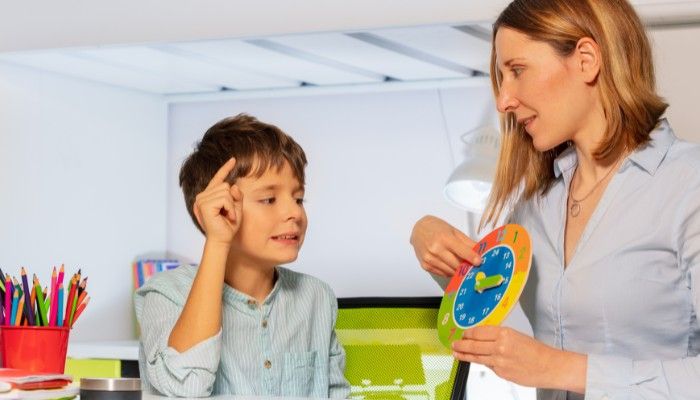


Debunk myths about special education and therapy. Get expert insights from top therapists in Paschim Vihar, Delhi NCR at Sensitivity Clinic.
In recent years, awareness around inclusive education and therapeutic interventions has grown significantly. Yet, despite this progress, numerous myths and misconceptions continue to surround special education and therapy. These myths can prevent families from seeking the help their child needs or cause hesitation in school systems about integrating special needs support. At Sensitivity Clinic, a trusted multi-disciplinary pediatric therapy clinic in Paschim Vihar, Delhi NCR, we believe that clarity and understanding are the first steps toward meaningful support for children with developmental and learning challenges.
Reality:
Special education is designed to support a wide range of learning differences and developmental challenges, not just severe disabilities. Children who struggle with reading, attention, speech, or social interaction may also benefit from individualized education plans and therapy.
In many cases, early intervention through special education allows children to thrive academically and socially alongside their peers. It’s about creating a learning environment that suits the child’s needs—not labeling them.
Reality:
Many parents delay therapy thinking it’s only necessary when the situation becomes critical. In truth, early intervention through therapy—whether speech, occupational, behavioral, or educational—can prevent larger challenges down the line.
Therapy is not a last resort. It’s a proactive tool to equip children with strategies that enhance their cognitive, emotional, and physical development. The sooner a child receives tailored support, the better their chances of meeting developmental milestones.
Reality:
One of the biggest fears parents have is that therapy or special education services might isolate their child or label them unfairly. However, modern special education practices are deeply rooted in inclusion. Children receiving therapy are often integrated into mainstream classrooms with the right accommodations and support systems.
Rather than isolation, therapy encourages social participation by helping children develop communication, emotional regulation, and interaction skills. It enhances their ability to function in typical social settings—not remove them from it.
Reality:
While schools do play a vital role, therapeutic clinics like Sensitivity Clinic provide specialized one-on-one and group support that complements school-based interventions. In fact, many schools refer children to external therapists for additional care.
A clinic environment often provides a more focused setting where trained professionals have the tools, time, and expertise to deliver individualized therapy tailored to a child’s developmental profile. Collaboration between schools, families, and external therapists creates a holistic support system.
Reality:
This is a common misunderstanding, especially when therapy sessions involve play-based methods. Play is a powerful therapeutic medium, especially for children who may not communicate in conventional ways. Every activity—whether it’s building with blocks, painting, or playing a board game—serves a developmental purpose.
Therapists use structured play to enhance language, motor skills, sensory integration, and emotional expression. Behind every “play” session is a deliberate, evidence-based strategy guided by clear therapeutic goals.
Reality:
While some children naturally overcome minor delays, ignoring persistent developmental or behavioral challenges can make them more difficult to address later. Therapy provides children with coping mechanisms and adaptive strategies that not only help them manage their difficulties but also build confidence and independence.
Delaying support in the hope that a child will “catch up” can lead to emotional distress, academic struggles, and social withdrawal in the long term.
Breaking down the myths surrounding special education and therapy is essential for building a more informed, compassionate, and inclusive society. At Sensitivity Clinic, we are committed to educating families and empowering children through evidence-based therapeutic interventions.
Whether you’re a concerned parent, a school professional, or simply someone looking to understand more, remember: knowledge is the first step toward progress. Therapy and special education are not barriers—they are bridges to a better future.
If you are seeking support from a qualified special education therapist in Paschim Vihar, Delhi NCR, our team at Sensitivity Clinic is here to guide you with expert care and personalized intervention.
